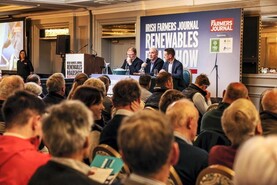Comments last week by Russian president Vladimer Putin that Russia could increase gas supplies to Europe tempered gas futures prices and provided the first sense that relief was in sight for soaring gas prices.
However, this week, speaking to the Financial Times, Russia’s permanent representative to the EU, Vladimir Chizhov, suggested that Europe’s treatment of Russia as an adversary had not helped. “Change adversary to partner and things get resolved easier…”
With Europe significantly dependent on energy imports, in particular from Russia, the comments underline how vulnerable the EU has become and how little bandwidth we have to deal with crises of this nature. European gas prices were up 57% in the last month, according to Dutch gas futures prices.
Meanwhile, in the US, oil prices continue to rally as Brent crude oil breached $83 a barrel on Monday, its highest level since 2014. Oil prices have risen more than 17% since the start of September, underpinned by strong demand from rebounding economies and natural gas shortages.
Consumers and businesses face the prospect of higher energy costs and increased inflationary pressure over the winter.
There is an unfortunate irony that as global leaders meet next month to agree implementation of the Paris climate commitments, they do so at a time when they are also appealing to large energy producers of oil and gas to increase production to meet growing demand and alleviate price pressure. Whether we like it or not, we are beholden to large energy companies and they wield a strong influence over our daily lives, which is unlikely to change anytime soon.
Comments last week by Russian president Vladimer Putin that Russia could increase gas supplies to Europe tempered gas futures prices and provided the first sense that relief was in sight for soaring gas prices.
However, this week, speaking to the Financial Times, Russia’s permanent representative to the EU, Vladimir Chizhov, suggested that Europe’s treatment of Russia as an adversary had not helped. “Change adversary to partner and things get resolved easier…”
With Europe significantly dependent on energy imports, in particular from Russia, the comments underline how vulnerable the EU has become and how little bandwidth we have to deal with crises of this nature. European gas prices were up 57% in the last month, according to Dutch gas futures prices.
Meanwhile, in the US, oil prices continue to rally as Brent crude oil breached $83 a barrel on Monday, its highest level since 2014. Oil prices have risen more than 17% since the start of September, underpinned by strong demand from rebounding economies and natural gas shortages.
Consumers and businesses face the prospect of higher energy costs and increased inflationary pressure over the winter.
There is an unfortunate irony that as global leaders meet next month to agree implementation of the Paris climate commitments, they do so at a time when they are also appealing to large energy producers of oil and gas to increase production to meet growing demand and alleviate price pressure. Whether we like it or not, we are beholden to large energy companies and they wield a strong influence over our daily lives, which is unlikely to change anytime soon.






 This is a subscriber-only article
This is a subscriber-only article











SHARING OPTIONS: